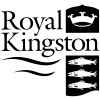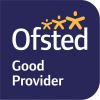Curriculum Accessibility
We pride ourselves on being an inclusive school and aim to ensure that all children are able to access our school curriculum. We strive to create a positive learning environment and sense of belonging for each and every child. We do this by continually developing our understanding of each child as an individual and the quality of our practice. Our curriculum is complimented by a range of interventions for those who need additional or different support in particular areas, delivered by our Teaching Assistants who also support learning in classrooms. We believe strongly that ‘fair isn’t everybody getting the same thing, fair is everybody getting what they need in order to be successful’ and develop this culture with the children.
Teachers adapt their learning environment and teaching to suit the needs of their learners through:
- Clear communication and considered use of language
- Consistent rules, routines and expectations
- The use of visuals to aid memory, understanding and communication
- Carefully considered seating arrangements and displays
- The use of sensory tools and strategies to support focus
- Effective questioning and developing a culture of ‘good asking’
- Including elements of pre-teaching and over-learning
Some children may need additional support to access independent learning tasks. This may include:
- Adaptations to the learning task
- Providing modelled examples or outcomes
- Use of concrete resources (such as number lines, cubes, sound mats, etc.)
- Adult support, with a ‘scaffolding’ approach to promote independence
- Alternative ways to record their learning
For a few children, specialist professionals may recommend a fully differentiated curriculum in one or more subject area. These children will work on the same subject area as their peers but an appropriate level for their stage of development. This learning will be planned by their teacher and facilitated by a Teaching Assistant, working with and alongside their peers as much as possible, with a continued aim of developing greater independence. The individual support for children with identified Special Educational Needs and/or Disabilities (SEND) is reviewed with their parents/carers at least termly.
More information about our approach to meeting the needs of children with SEND can be found in the Inclusion section of our website and in our SEN Information Report.




